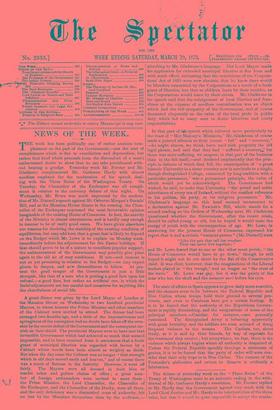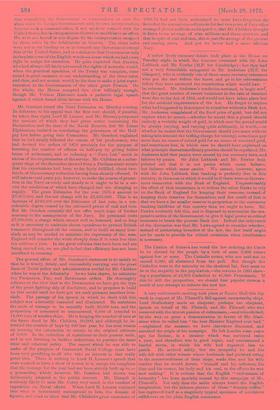The debate of yesterday week on the "Three Rules" of
the Treaty of Washington came to an amicable ending in the with- drawal of Mr. Gathorne Hardy's resolution. Mr. Forster replied to Mr. Hardy that the Government agreed very much with the Lord Chief Justice and Mr. Hardy in its interpretation of the three rules, but that it would be quite impossible to accept the resolu-
tion committing the Government to communicate at once the three rules to foreign Governments with itsown interpretation, because such a cotutnunieation, if not made in concert with the United States,-but in antagonismto theioview,would have no effect. We were not bound in any-degree by the interpretation assigned to those rules by the Arbitrators at Geneva. The three rules were not as yet binding on us as towards any Government except that of the United States, and in relation to that Government only in the plain sense of the English words—a sense which we had every right to assign for ourselves. He quite expected that America, who had always till lately advocated the rights of neutrals, would, when the practical operation, of the Treaty was complete, come round in great measure to our understanding of the three rules, and then, and not sooner, would be.the time to make a joint repre- sentation to the Governments of the other great Powers. On the whole, the House accepted this view willingly enough, though Mr. Vernon Harcourt. made a pedantic legal speech against it which found little favourwith the House.







































 Previous page
Previous page